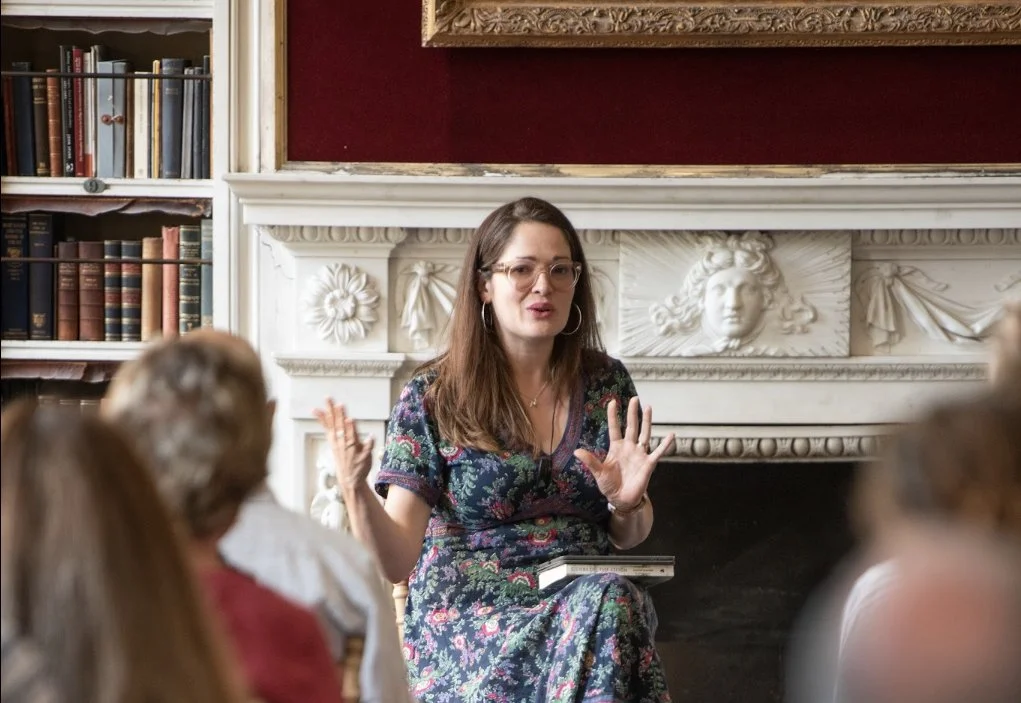Oliver Burkeman, Joan Didion and the burden of changing the world
This weekend I had the privilege of hosting the Realisation Festival, a gathering of philosophers, psychologists, activists and others keen to “advance societal transformation in a more soulful way”. The writer and columnist Oliver Burkeman spoke movingly and challengingly on time and how to use it wisely. When asked what he was trying to do with his work he quoted a Buddhist teacher, who said her task was not to lighten people’s load, but to make it so heavy they would put it down. For Burkeman, and for many of us, the load is often the sense that we need to fully understand the world, to grasp the right set of critique-proof ideas, to find the answers to the world’s problems and then fix them. As the group of socially conscious people gathered, many bringing exhaustion, confusion and fear, the message about respecting our limits, our finitude as Burkeman puts it, landed like a blessing.
In between sessions I was reading the great American essayist Joan Didion, whose work reveals the similarities between the 60s and 70s search for “societal transformation” and our own. Didion, in her way, also wanted people to put the load down. She gently mocked her periods “cognitive frenzy for answers”, metastastasising through conventional politics, Freudian analysis, post-colonial protest, psychedelic drugs and feminism.
This ‘frenzy for answers’ marks our period too. We are told we are homo deus, set to transcend our humanity through technological progress, able to apply our outstanding reason to the problems that face us. If we can organise and protest and critique enough, we can fix the world. Many of Didion’s descriptions of black power campus protests are overlaid for me with images of toppling statues, psychedelics are again seen as the way to enlightenment and some descriptions of feminism then could be written now: they used “ a kind of shared testimony called.. “consciousness raising’ a therapeutically orientated American reinterpretation of a Chinese revolutionary proactive known as ‘speaking bitterness’.”
Didion, formed in the more stable but cynical 50s, had little patience for those who thought their answer, their movement, could finally fix the world. She called the quest for answers, be it environmentalism or racial reconciliation, psychedelics or feminism, “the guiding delusion of [our] time” and notices how many have “been betrayed by all those answers and more, and yet, increasingly possessed, [their]only response has been to look for another.” She elegantly skewers the ridiculous
underbelly of most social movements, as in this description of student protests: “‘Adjet-prop commitee meeting in the redwood room’, read a scrawled note on the cafeteria door one morning; only someone who needed very badly to be alarmed could respond with force to a guerrilla band that not only announced its meeting on the enemy’s bulletin board but seemed innocent of the spelling, and so the meaning of the words used”. I laughed wryly, sharing Didion’s glow of intelligent disdain. One very attractive response to the load, the overwhelming complexity and urgency of the problems that face us is this - an eye roll. Of course we can’t fix it, look at these naive fools who try.
And yet. Love Didion as I do, her air of world weary distance, the wisp of nihilism she wears like a silk scarf, doesn’t feel like a blessing. As she herself admitted “there is something finally very moving about [the] tenacity” of those who throw themselves at the worlds’ brokenness, their urgency to help, their sense of responsibility. Being willing to be ridiculous is a kind of moral courage in itself.
It’s no accident, then, that Burkeman quoted a Buddhist. Our wisdom traditions provide our best source of ballast for balancing in this tension. The mismatch between the scale of threats we face and our own very real limits requires sources of meaning ideology alone cannot offer. Putting the load down is not giving up, descending into an individualist apathy. Jesus invited his followers to “cast their burdens” onto God, and then take up a cross, a load which would be somehow a light yoke, a well-fitted burden. These paradoxes can sound like nonsense and feel like freedom. Throughout the festival, despite most people being non-religious and sceptical, these older, theological concepts like surrender, long suffering, humility, patience, courage and even (whisper it), God, came up again and again. Several speakers admitted themselves to be “Christian curious”. Didion, an agnostic later in life with an ongoing allergy to earnestness, might have raised a finely arched eyebrow, but we all went away lighter.
Photograph by Amanda Lockhart
